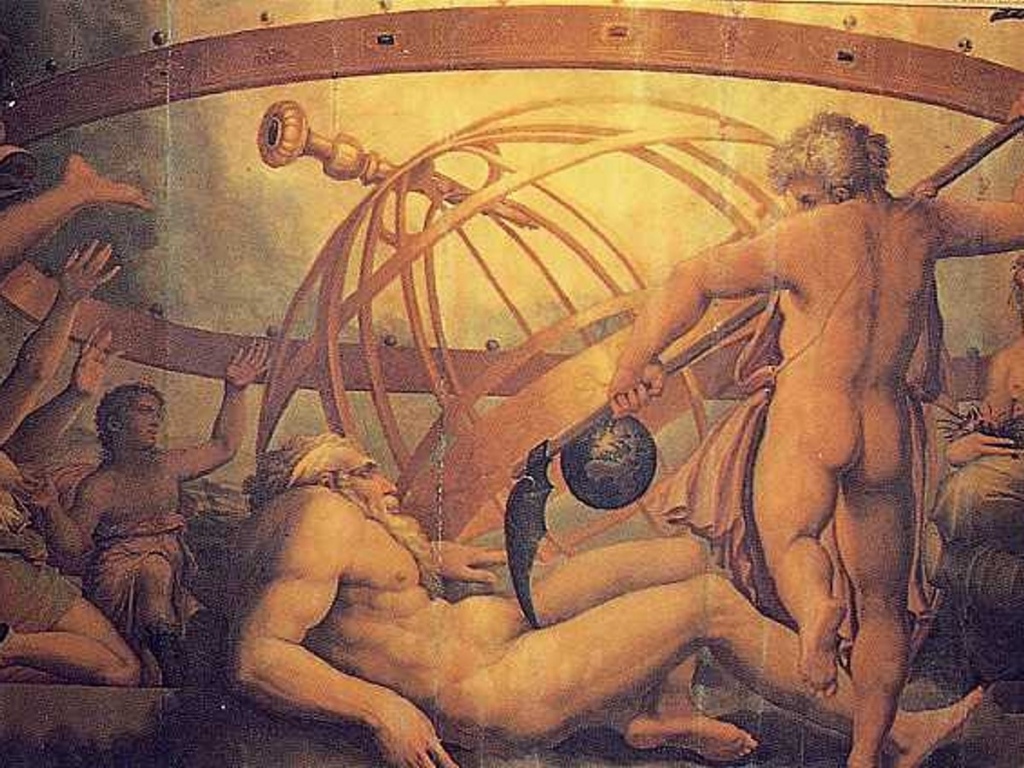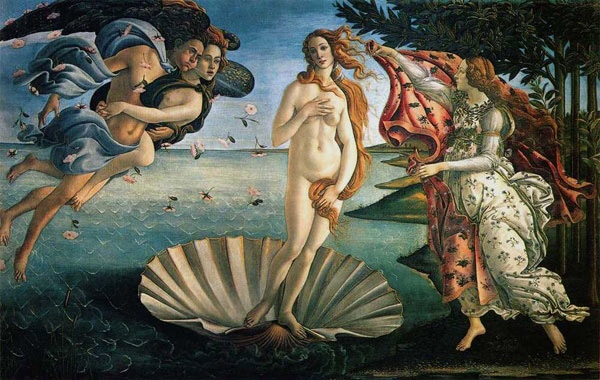The Primordial Sky and the Birth of Titans
Also known as Uranus, Ouranus stands as the grandfather of the Olympians, the Father of the titans and one of the first born to Gaia herself. He is the primordial personification of the sky—a deity whose influence extends far beyond the celestial realm. With his pride and ruthlessness Uranus sets in motion the cosmic event that make up the Greek theater.
The Primordial Sky:
His name, Uranus, is derived from the Greek word for “sky” or “heavens,” emphasizing his elemental connection to the celestial domain, it is no wonder then that we have a planet named after the god of the sky.
Though he was not born from Chaos, the primordial soup, Ouranus is considered a a primordial god. He, the Great Sea Pontus, and The Mountains, The Ourea, stand as the first three children of Gaia who was the Daughter of Chaos and sister to love, darkness, and oblivion.
As the personification of the sky, Ouranus is often depicted as a majestic figure whose body blankets the earth, serving as a cosmic force that unites the heavens and the earth in a divine embrace. Even though he was a,on gust the youngest of the primordial deities he took up the reign of King of the Greek Realm along with his queen Gaia with whom he fathered many children.
Union with Gaia:
The myth of Ouranus is connected with that of Gaia, the primordial Earth goddess. Their union is both cosmic and literal, symbolizing the inseparable bond between the sky and the earth – a union we see in other stories such as Geb and Nut from Egyptian mythology. From this union, three sets of children are born including the Cyclopes, the Hecatoncheires, and most notable of all, the Titans.
Fearing the power of his offspring, Ouranos chose to imprison the Hecatoncheires within the earth. The Hecatoncherries are described as brutish being with fifty heads and a hundred hands each. Next, he does the same to the cyclops who only had one eye but an equal brutish nature. This act sets the stage for a cosmic conflict that will shape his destiny and the fate of the gods.
A Great Castration:

It is always that great conflict that sets in motion a series of events that will come to define the destiny of the planet. For some it was the conflict between Cain and Able. For the ancient Greeks however, it was a great castration of the Sky god.
Many of the Titans were sent to the underworld as well, to the pit of Tartarus, the on,y place capable of handling these brutish beasts, However, the Titans grew in power and resentment. Gaia upset at the treatment her children got, asked for one of the titans to volunteers for a dangerous task. Gaia provided her son, the young Cronus, with a sickle, and in a brutal act, Cronus castrated Ouranus. The severed genitals of Ouranus fell into the sea.
These remains, in one story, mixed in with the waters of the sea creating sea foam and from this the goddess Aphrodite was born. In his beautiful piece, Sandro Botticelli depicted the moment the Love goddess was born.

This cosmic castration marks a shift in power from the ancient primal gods to the more earth bound Titans. It is a shift from sky to earth, from the abstract and ancient concepts of creation to more grounded physical beings. The act of castration becomes a symbol of cosmic transformation and the cyclical nature of creation and destruction.
Cronus became the new king of the universe and brought forth a Golden Age of the Titans, leaving the hundred handed giants and the Cyclopes I. The underworld to rot. Cronus took his sibling, Rhea as a wife, and divided the world between his siblings, the other ten Titans.
Legacy and Symbolism:
Ouranus, the great sky, though overthrown and diminished in power, leaves an enduring legacy in Greek mythology. His role as the progenitor of the Titans, the cosmic order, and the very essence of the sky itself solidifies his importance in the pantheon.
Symbolically, Ouranus represents the celestial forces that govern the natural world. His story reflects the ancient Greeks’ understanding of the interconnectedness of the elements and the cyclical patterns of creation and upheaval. A crucial theme that is repeated several times is the conflict between generations, as Cronus overthrew his father so to will his son do the same.
Conclusion:
The myth of Ouranus, the primordial sky deity, unfolds as a cosmic drama that sets the stage for the emergence of the Olympian gods and the establishment of a new order in the cosmos. From his divine union with Gaia to the transformative act of castration, Ouranus encapsulates the eternal dance between chaos and order, creation and destruction. As the embodiment of the celestial realm, his influence extends beyond myth, echoing through the ages as a symbol of the profound mysteries that shape the universe. Though he was no longer active in the Greek Theater his presence is always felt.